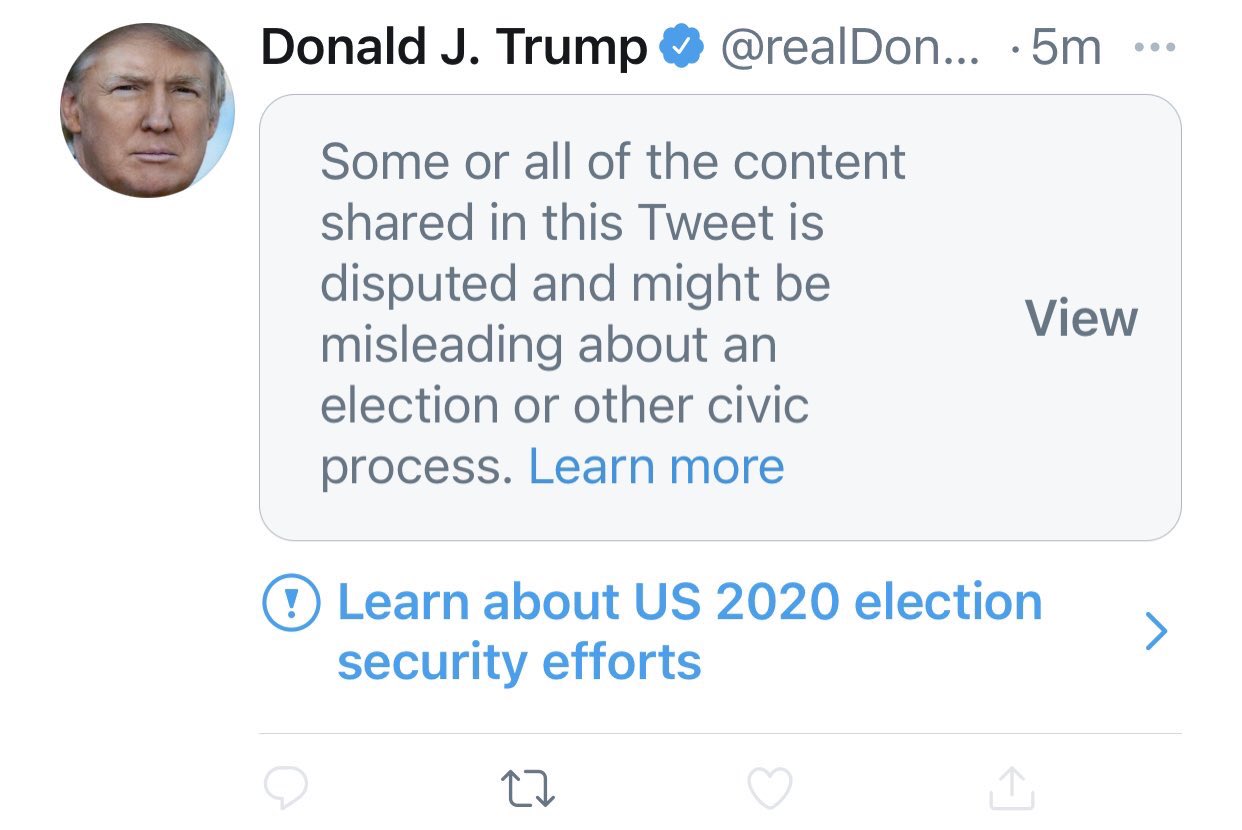This shift of accountability and responsibility by the platforms is something that I’ve wanted for a long time and I don’t think you can underestimate the impact it had on Biden’s win. If you don’t challenge autocrats and fantasists, then you’re directly feeding their narrative.
Platforms are now the preeminent news source, so they have an obligation to call people out – and that doesn’t matter if they’re a small-time racist or the leader of the free world. Free speech is essential, but so is curbing lies, bigotry, and hatred if we truly want democracy to flourish.
Continually repeating claims and false narratives doesn’t make them true, but the potential for them to be taken seriously and do real harm is increased tenfold if they’re not questioned and challenged by the very companies that are facilitating their dissemination.
New strategies for tackling interference
I welcomed Facebook’s decision to ban political ads a week before the election. Some of its practices had quite rightly been criticised in 2016, but this kind of decisive action proved it had learned from the past and was willing to play its role in making the election as fair as possible.
Its move to also take down any posts that claimed voters would catch coronavirus if they went to the polls to vote was another example of its leadership and commitment to true democracy.
As in every election year, both political parties spent eye-watering sums on their campaigns. We’re talking numbers that dwarf anything that’s spent in the UK. However, for the first time in its history, Facebook collected and made publicly available tens of thousands of ads from both candidates which revealed an insight into their respective social media strategies during the last week where they could spend on the platform.
Biden’s page spent $6.1 million on 19,336 different ads between October 25th and October 31st, while Trump’s page spent $2.9 million on 53,817 different ads. I was surprised to see that disparity in their respective spends – especially as Facebook was so vital to Trump’s victory four year ago.
Yes, Trump took out far more ads for much less spend, but that approach is questionable. You can read what you want into that, but you could potentially argue that Facebook’s commitment to stopping any sort of lies or the spread of misinformation in ads had a direct effect.
Early assessments indicated that, at least publicly, social media didn’t stand out as a problem on election day and that the main platforms had learnt many lessons from 2016. However, their responsibilities are certainly not over and I expect to see more attempts at fake news and false claims come to light over the next few weeks.
Having said that, I’m confident in them, and their commitment to ensuring true and just democracy plays out.












